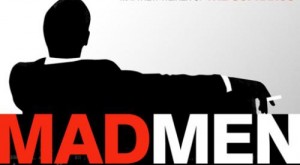 Last night saw the return of Mad Men to UK TV screens on Sky Atlantic, although it had a far more limited reach than before when BBC broadcast the feted TV series.
Last night saw the return of Mad Men to UK TV screens on Sky Atlantic, although it had a far more limited reach than before when BBC broadcast the feted TV series.
As I was watching, I also kept an eye on my Twitter stream to swap comments with the, admittedly-few, others who were also enjoying the show.
Naturally, I appended a #madmen hashtag to any tweets, but was surprised to see that Sky was offering up a different option: #madmenonsky. I was baffled. OK, so Mad Men is showing on Sky, buy why does Sky feel the need to remind everyone of that fact?
A brief search on Twitter showed that Sky’s move bombed. Although a few people used the #MadMenonSky tag, the far more obvious #madmen was the clear winner.
Sky isn’t the first broadcaster to try and get people to use an unlikely, branded hashtag. During X Factor, ITV always try to get people to tweet and append #itvxfactor. While they do have some success, the much more obvious #xfactor always wins out.
It’s an odd attempt to commercialise tweets that shows, yet again, how many big companies fail to grasp how difficult it is to impose their own will onto the Twitterverse.
The BBC probably doesn’t have the same commercial pressures, but even they still try to shoehorn the channel onto Twitter, opting to steer tweeters towards using #bbcapprentice rather than #apprentice.
TV channels – and other brands – need to understand that Twitter is made up of individuals, not an amorphous mass. Yes, people follow the herd, but they can also smell an unnecessary commercial plug and do something to avoid using it.






I understand the commercial pressure, but it comes down to tweet real estate and the loss of those unnecessary characters is loss of room for the actual tweet. So, unless there’s a direct reward (such as onscreen live tweets) there’s no point using the commercial version.
Great point, Keely. Another reason not to bulk pita tweet with unnecessary branding